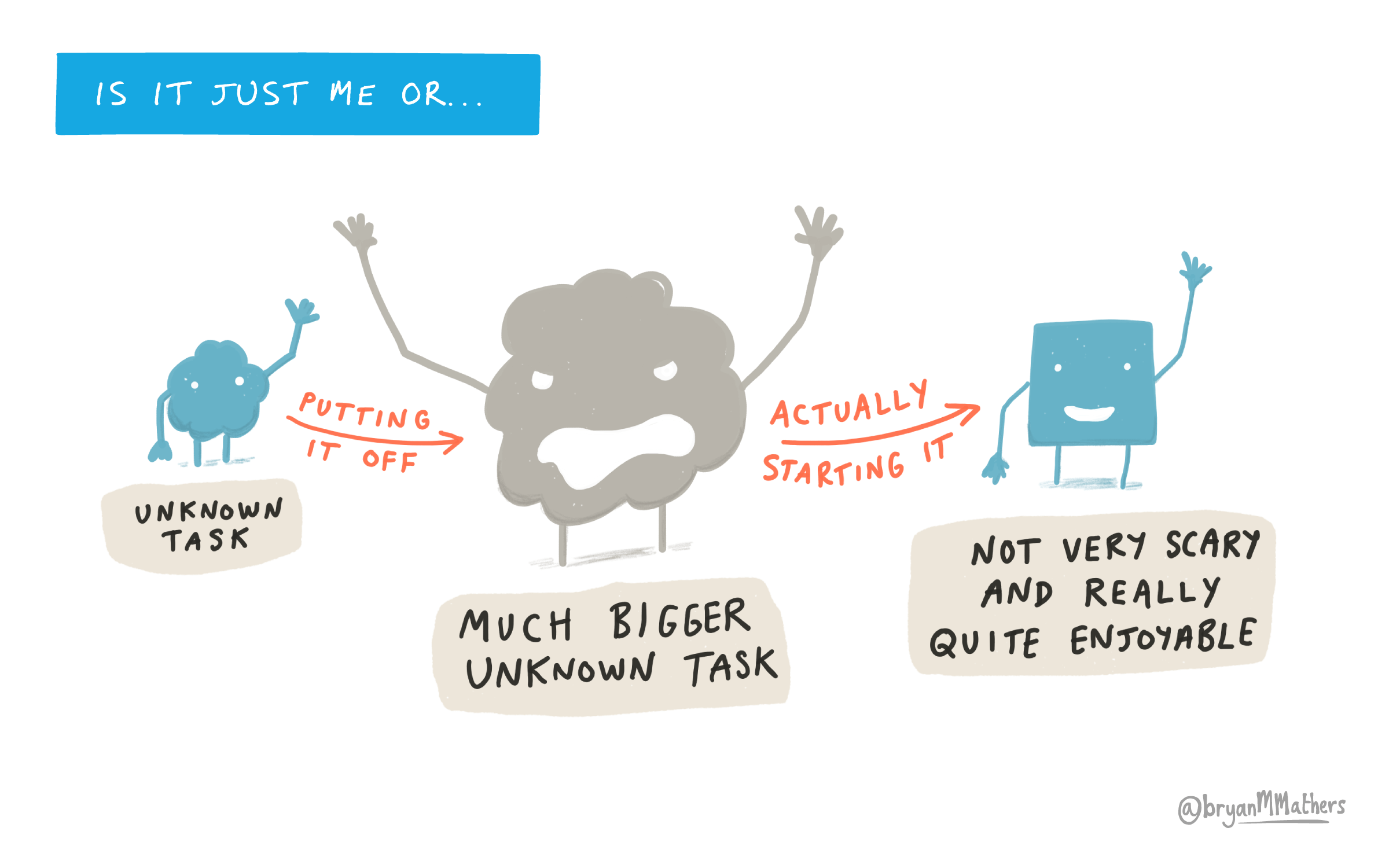15 Organising Your Future
You might find it a bit scary thinking about your future. You might be tempted to procrastinate making important decisions, especially when they are potentially life changing, see figure 15.1. There is a risk of thrashing or getting stuck in a do-nothing or busy waiting loop. This guidebook is here to help you break out of that loop. One way to breakout of an unproductive loop is to organise and schedule some time every week where you work on personal development and job applications. Doing good applications takes time and you’ll probably find you can’t do as many applications as you might like, especially when you consider Hofstadter’s law: It always takes longer than you expect, even when you take into account Hofstadter’s Law.

Figure 15.1: The biggest waste of time is the time spent not getting started on a project. Your future might seem big and unknown but it’s really not as scary as you might think and getting started can be surprisingly enjoyable. New Project? Every time… by Visual Thinkery is licenced under CC-BY-ND
Your future is bright, your future needs organising, so let’s start organising your future.
15.1 When and where can I start building my future ?
How you start organising your future will depend on what stage of your degree you are at
- First year pathway, see section 15.4
- Second year pathway, see section 15.3
- On placement or internship pathway, see chapter 24
- Final year pathway, see chapter 8
In section 11.2.10 and 11.2.10 we discussed the importance of timing in your job search. When you apply for jobs will determine what kind of jobs are available because most graduate schemes and graduate jobs follow a rhythmic recruitment cycle of some kind. How many jobs you apply for is largely a function of how much time you spend doing it. The more time you spend, the more applications you can do.
We haven’t explicitly discussed the timing and organisation of the activities outlined in the preceding chapters:
Let’s imagine you could precisely specify all of the tests using make in a makefile or specify them somehow in your favourite Integrated Development Environment (IDE). Ideally, you’d like to automatically run these tests, so that you can build your future systematically. You’d like to repeat these tests periodically, e.g. once a day, week, month or whatever your schedule is, similar to build automation in software engineering. Attempts to automate aspects of job applications and interviews have so far had very mixed results. (Schellmann 2022; Dastin 2018) But, as another thought experiment, let’s image it was possible
15.2 Breakpoints
Let’s pause here. Insert a breakpoint in your code and slowly step through it so we can examine the current values of your variables and parameters.
- So what’s in your make file?
- How often will you run it?
- Which tasks can you automate?
- Which tasks are always going to be manual?
15.3 Second year pathway
If you’re a University of Manchester student, the live Coding your Future (COMP2CARS) workshops sessions are also here to help, every Tuesday at 4pm - Lower first floor of the Kilburn building.
15.4 First year pathway
If you’re in your first year, here’s five steps you could take to start Coding Your Future:
- Join a society, or start your own see section 5.3.2
- Attend a hackathon, either as a participant or co-organiser, see section 5.3.8
- Contribute to Open Source Software, see section 5.3.5
- Volunteer to build your skills, see section 5.3.7
- Apply for spring insights in first year, see section 5.3
See chapter 5 for ways you can start Experiencing Your Future in your first year.